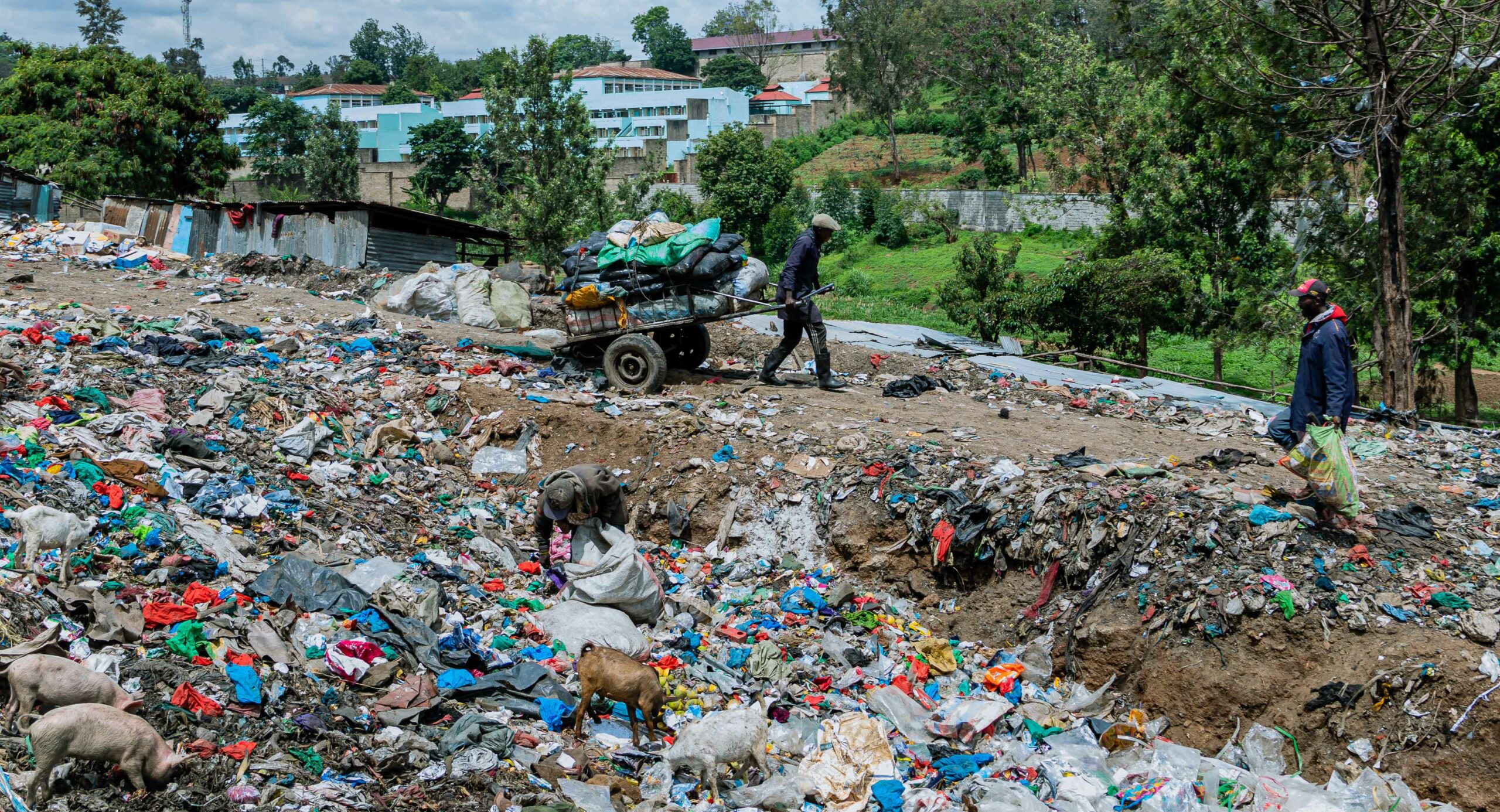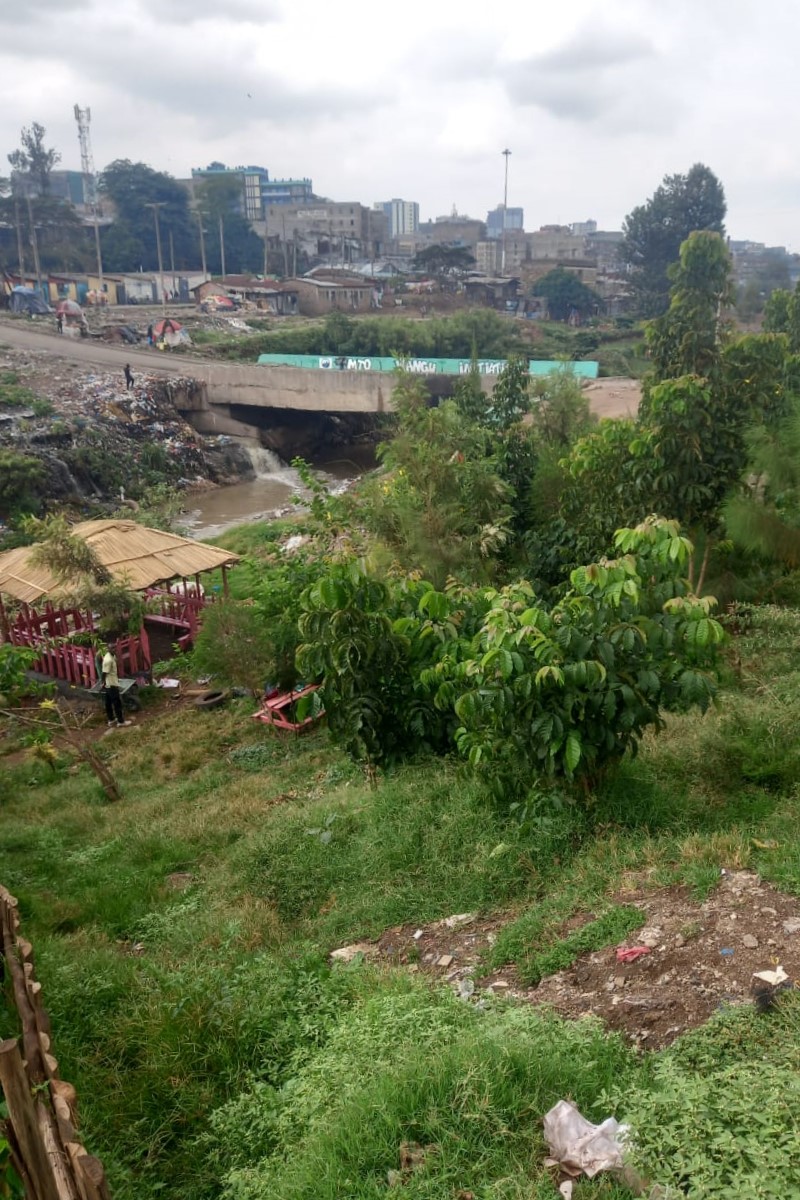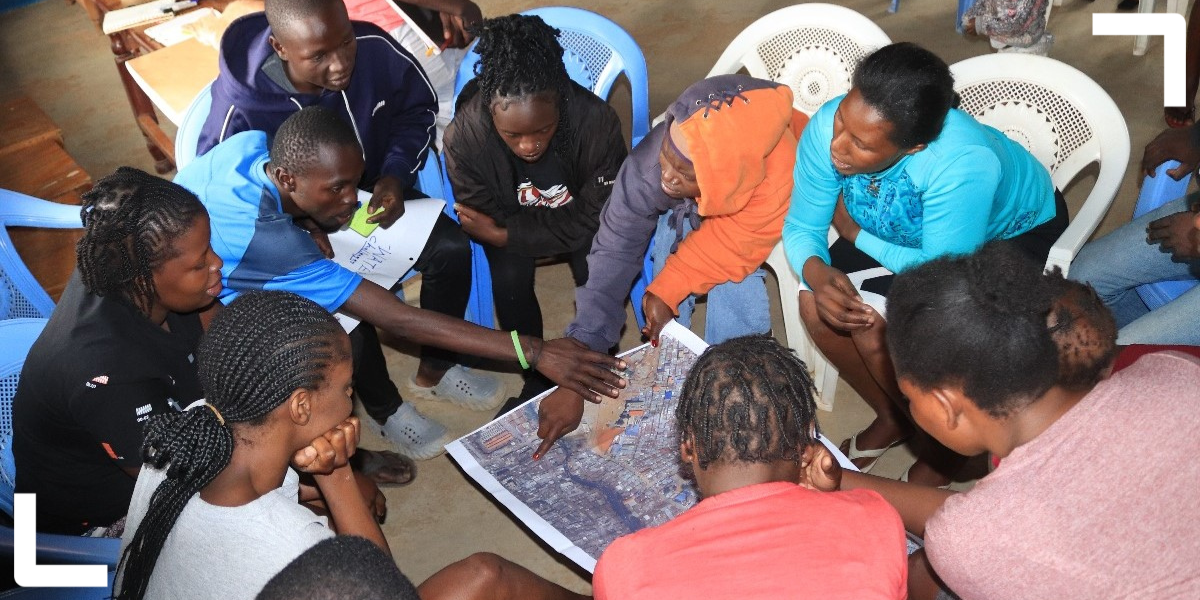By Michelle Koyaro, programme assistant at SDI Kenya
Like many large informal settlements, Mathare in Nairobi faces many challenges, including the poor management of waste, leading to severe health, environmental and infrastructural consequences. Its waste management system is highly fragmented, with informalities throughout the value chain. Numerous investments aimed at improving living conditions in Mathare have largely been unsuccessful in bringing about meaningful change.
The reasons for this failure are complex and multifaceted. Much of the investment has been fragmented, focusing on short-term solutions, rather than comprehensive holistic, systemic and long-term change. Furthermore, the state and local government have often neglected their responsibility to provide and manage public infrastructure and services in informal settlements. This neglect is partially attributed to systemic issues, with either insufficient investment or a complete denial of resources to these areas, exacerbating the situation further.
Addressing these challenges calls for a holistic approach that not only injects capital but also introduces reforms to the governance structures that have perpetuated these problems.

Holistic strategy
A consortium comprised of SDI Kenya, Nuvoni, Ghetto Foundation and Mathare Social Justice Centre has united to spearhead a holistic waste management strategy for Mathare. The primary objective is to advocate for the Nairobi City County Government’s declaration of Mathare as a Special Planning Area (SPA), leveraging on the transformative success of the Mukuru SPA – particularly its provision of sustainable service delivery, such as simplified sewer systems.
This proven model of urban change offers a blueprint for impactful development in Mathare. Critically, waste management action research will serve as the initial entry point within this broader initiative, paving the way for sustainable, long-term community transformation in the settlement.
Community-led solutions to waste management
SDI Kenya, through the African Cities Research Consortium (ACRC), is aiming to co-develop solutions with Mathare community members, by devising a holistic waste management system in the area. This project seeks to contribute towards transforming Mathare’s entire waste management system by connecting the following three main thematic areas:
> Solid waste management (SWM)
> Sewer and liquid waste infrastructure
> Productive public spaces

The project seeks to understand and transform Mathare’s waste management landscape by assessing existing solid and liquid waste systems and co-designing practical, low-cost solutions. It also focuses on revitalising underused or contested spaces, to transform them into multifunctional, green and inclusive public areas, enhancing residents’ quality of life.
The initiative will be piloted in Mathare’s 4B village, serving as a proof of concept for interventions across the three sub-components. If successful, the pilot will offer a tried-and-tested model for scaling up these interventions to other villages within Mathare and potentially to other informal settlements.
Leveraging on partnerships to drive action
As part of this initiative, the project in Mathare Valley seeks to enhance settlement planning, economic empowerment and sustainable waste management, through a collaborative effort.
To ensure effective and inclusive community-driven interventions, the consortium will collaborate with the Nairobi City County Government, the Nairobi River Commission and national regulatory bodies – such as the National Environment Management Authority (NEMA) – to develop a participatory approach that addresses these challenges.
A formal partnership with the Nairobi County Department of Climate Change, solidified by a memorandum of understanding, underscores the collaborative approach. It also builds on years of community organising, by amplifying and integrating community voices at every step.

The intervention will leverage on existing initiatives in Mathare to support and strengthen its implementation. For instance, through the Mathare 4B, Kiamaiko ward adaptation planning and Mathare-Gitathuru ecosystem adaptation planning, we have the Mathare River Adoption Campaign that works directly with community members to clean up the Gitathuru and Mathare Rivers. This network comprises various waste management groups, particularly from the Mathare 4B settlement in Mathare Valley. It engages in activities such as river cleaning, waste sorting, segregation and urban farming, all of which contribute to improved waste management and enhanced livelihoods.

Harnessing lessons for scale-up, driving meaningful change
The project builds upon foundational community knowledge research by ACRC on the solid waste value chain in Mathare. Integration of insights from the community knowledge workstream will sharpen the design of sustainable interventions that strengthen the waste value chain and improve livelihoods for waste pickers. Moreover, the project connects with a parallel land titling project, also under the portfolio of ACRC action research projects in the city. Understanding land ownership dynamics will be vital in establishing viable locations for implementing interventions.
Anchored on catalysing the designation of Mathare as an SPA, this project champions integrated, community-led solutions. It seeks to establish Mathare as a model for scalable, sustainable and community-driven waste management systems that will strengthen local governance and boost residents’ climate resilience by 2026. Ultimately, the initiative will demonstrate how a mobilised community, pursuing public good and collaborating with all levels of government, can drive meaningful change.
Photo credits: Know Your City TV Kenya. Images showing adapatation planning, community forums, public spaces, waste dumping sites and the polluted river in Mathare, Nairobi.
Note: This article presents the views of the authors featured and does not necessarily represent the views of the African Cities Research Consortium as a whole.
The African Cities blog is licensed under Creative Commons Attribution-NonCommercial-NoDerivatives 4.0 International (CC BY-NC-ND 4.0), which means you are welcome to repost this content as long as you provide full credit and a link to this original post.


